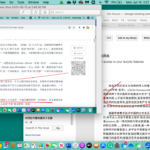Shenshi (绅士, shen-shih), literati, refers to the class of people in China who were educated therefore accorded with privileges. Aside from dressed differently, they
- could attend official ceremonies in the Confucian temples, and led the ancestral rituals.
- were protected against insults from commoners
- forbade in manual labor
- would be punished lightly for the same crime committed by a commoner
- excused from and later pay less of the poll tax, in preparation for imperial examinations.
These were just a few perks among many, according to Immanuel Hsü, who also considered its society was highly stratified, but egalitarian, which meant no caste system. Most people could take the imperial examination (keju or wuju) to improve their social status, which became the dominated force in the past dynasties.
The translation of it varies, from ‘gentry’ by Paul A. Cohen, to ‘educated men’ by Y.C. Wang, and to ‘scholar-gentry’ by Immanuel Hsü. They all had their reasons and were all correct.
Gentry, as it is known in the West, a notch below nobility, means, in general ‘well-born’ and the title could be inherited. In U.K. in particular, meant with real estate. This was not the case in China. It was not a title but a loose term for a social class. It meant educated, at least passed the first level of the imperial examination, out of three. Shenshi could be born poor and without a shelter. But after passing the exam – obtained some education, he could attain high position in the government, which was the only path to fame, glory, and wealth.
I choose ‘literati’ because for one, this class of people were educated, and secondly, the imperial examination was nothing but literature. For more on imperial exam, please check out my post.
 Plagiarism?
Plagiarism?
看见 ‘美国学者赖文逊’ 不知道是谁, 就找小谷哥. 结果是, 没有什么结果. (比如 ‘白乐日’, 小谷哥在右上角给出 Étienne Balazs). 再多翻一下 找到2本书: 许纪霖 2005年的 《20世纪中国知识分子史论 》(新星出版社) 和阎步克2015年的《士大夫政治演生史稿》(北京大学出版社) .
大致看了一下 除了都有一模一样的 “美国学者赖文逊对中国的士大夫还有一个很有趣的称呼: amateur” 之外, 还有许多相同之处.
最不想看到的是谷哥一个中文写的关于外国的名,词或者句子, 然后回馈的结果都是中文. 大家都在抄袭?
Be First to Comment